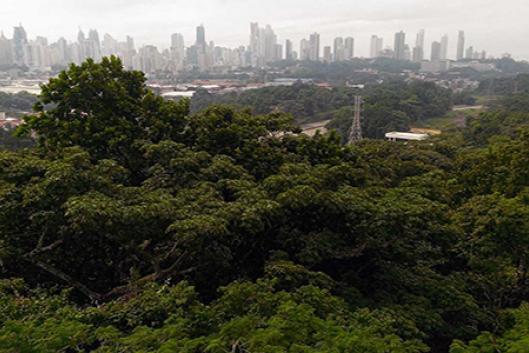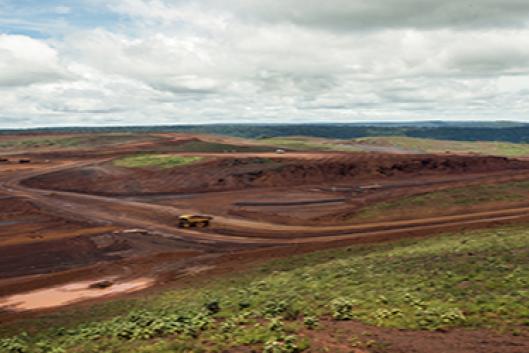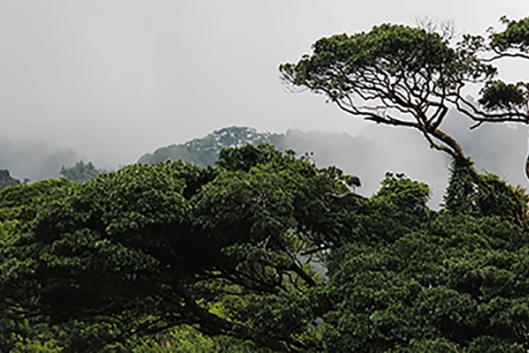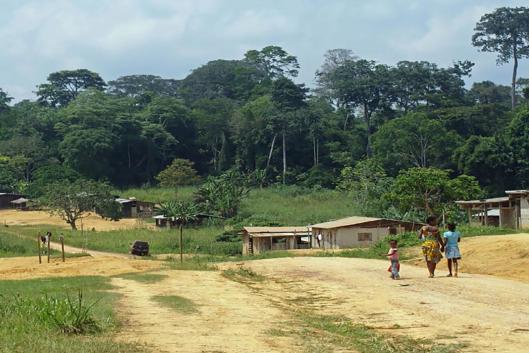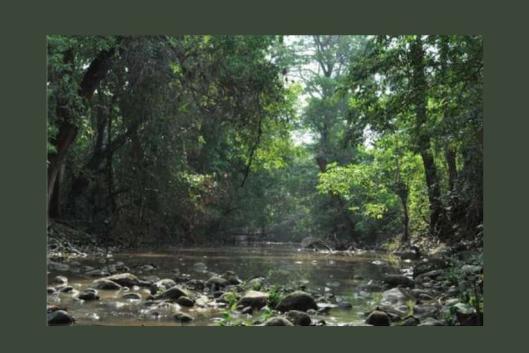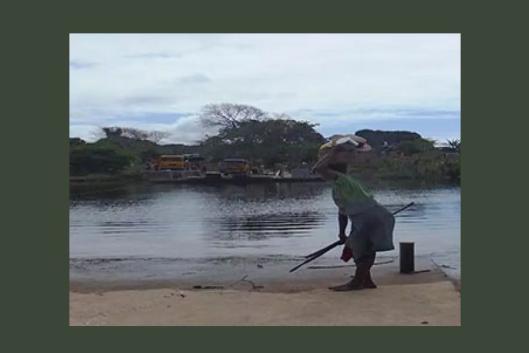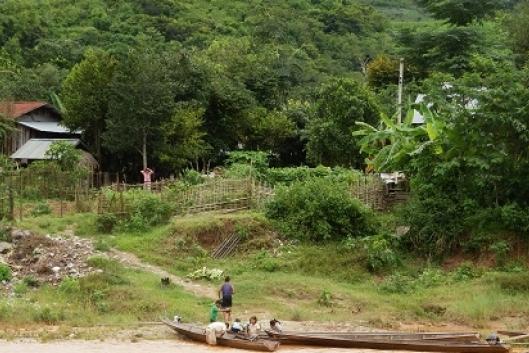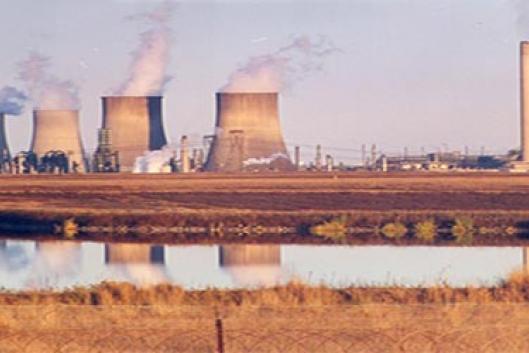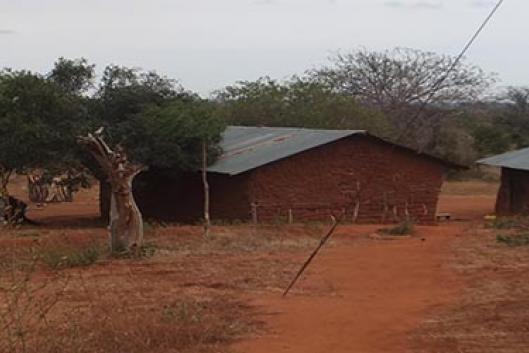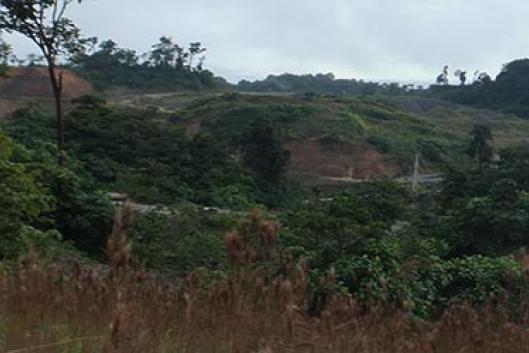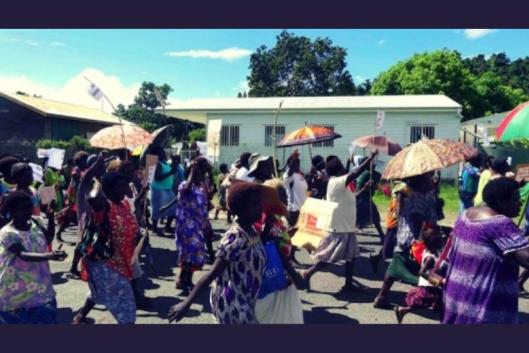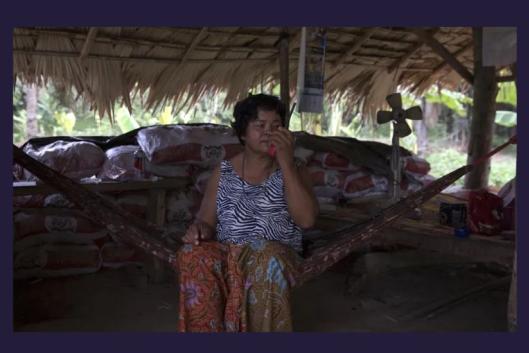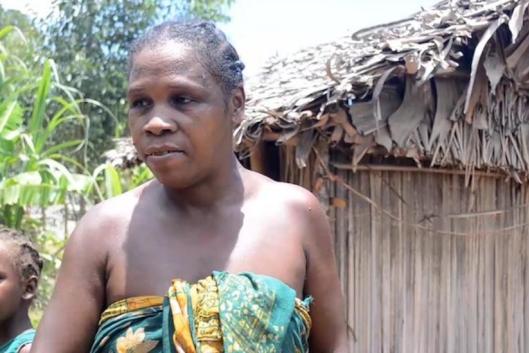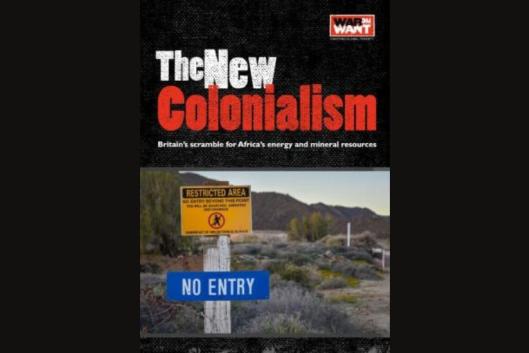This issue of the WRM bulletin is focused on one of the key strategies that (mainly extractive) industries use to expand within the framework of the so-called "green economy": biodiversity offsets. We believe it is important to warn about the strong corporate push that is trying to get governments to relax their environmental laws, and thus allow certain industrial activities to take place in areas previously considered to be unviable.
Bulletin Issue 232 – July/August 2017
Biodiversity compensation: expansion of industrial extraction and land grabs
WRM Bulletin
232
July/August 2017
OUR VIEWPOINT
BIODIVERSITY COMPENSATION: EXPANSION OF INDUSTRIAL EXTRACTION AND LAND GRABS
-
23 August 2017In 2014, the Gabonese government passed a new "Sustainable Development" Law, which authorizes companies to compensate for the destruction they cause in forests or traditional lands by buying offset credits. These are divided into four different kinds of credits: carbon credits, biodiversity credits, ecosystem credits and community capital. The latter is defined as "the sum of natural and cultural assets belonging to a community." This market system would allow the different kinds of credits to be fully interchangeable, so that it would be possible to exchange "community capital" for other components, such as carbon or biodiversity. However, the text of the law is not clear, and gives rise to various interpretations.
-
23 August 2017Colombia is one of the first Latin American countries to set up and implement specific rules and regulations on biodiversity offsets. In addition to article 50 of law 99 from 1993, both resolution 1503 from 2010, and law 1450 from 2011 establish the need to standardize environmental offset mechanisms.
-
23 August 2017"It is an absurdity, as well as an injustice that they take away our forest claiming that they want to protect it, while in reality it is only a way for them to continue to devastate, with their mines, another forest somewhere else." This is how we were received sometime ago by the assembly of the village of Antsontso, a small community at the far south of Madagascar. It was September of 2016. For the third time in a few years, the Italian organization Re:Common decided to go back to the big island to continue unveiling the scam of biodiversity offsetting, which is making the fortune of mining companies and the misery of communities around the world. What is biodiversity offsetting about?
-
23 August 2017The governments of Cambodia, Laos and Thailand are planning eleven large-scale hydropower dams on the Mekong River’s mainstream. If built, the dams would block major fish migrations and disrupt this vitally important river, placing at risk millions of people who depend upon the Mekong for their livelihoods and cultures. The Laos hydropower development plan alone contains more than 70 new big dams, 12 of which are under construction and nearly 25 at advanced planning stages (1). Laos has also signed a Memorandum of Understanding (MOU) to provide 7,000MW of energy after 2015 to Thailand, and 3,000MW of electricity from now until 2020 to Vietnam (2). One key investor in these dams is the Asian Development Bank (ADB).
-
23 August 2017How air quality offsets were set in place Air quality offsets in South Africa are part of a push back against gains made in air quality regulation through the hard work of environmental justice activists since the arrival of a non-racial democracy in 1994. Working for over a decade against a reluctant and weak regulator (the Department of Environmental Affairs, or DEA) and strong corporates (petro-chemical giant Sasol and steelmaker ArcelorMittal) as well as Eskom, a corporatized parastatal that has the monopoly in the electricity sector, activists succeeded in forcing a revision of air quality regulation in 2004, to be more in line with the environmental right in the South African constitution.
-
23 August 2017BHP Billiton is the world's largest mining and petroleum company running mines in 13 countries. Its main offices are in Melbourne, Australia, and in London, UK, where the company sells shares on the London Stock Exchange.
-
23 August 2017Minera Panamá (MPSA), owned by Canadian company First Quantum, has a concession to conduct open-pit copper mining in the Donoso District, Colón Province, which covers an area of 13,600 hectares within a protected area of Panama. Additionally, the company has built a 200-hectare deepwater port on the Caribbean sea,—which it will use to export the mineral from the country—as well as a coal-fired power plant to provide energy for its operations. The concession is located about 120 kilometers west of Panama City. In order to obtain the environmental authorizations, the company has presented plans to "offset the loss in biodiversity." Who is First Quantum?
PEOPLES IN ACTION
-
23 August 2017Women protesters led a blockade against the Panguna copper mine to prevent the signing of a Memorandum of Understanding (MoA) between the Autonomous Bougainville Government (ABG) and the Bougainville Copper Limited (BCL) company. They also won a court injunction so the MoA cannot be signed until further notice. The MoA intends to allow BCL to reopen the mine before June 2019. The Panguna mine was abandoned in 1989 after a decade-long armed uprising and a movement for Bougainville independence from Papua New Guinea arose. The MoA was drawn up without the consent of the women of Panguna who are culturally the true landowners. One of the woman chiefs stated: “This is the company that has killed our sons and daughters.
-
23 August 2017In November 2012, two women were found dead at the edge of a palm oil plantation. The death were understood as a clear warning to the Klong Sai Pattana village in Surat Thani, southern Thailand. The victims had spent the last four years fighting the Jiew Kang Jue Pattana Co. Ltd palm oil company in a land dispute that has engulfed this small community of around 70 families. For decades, Jiew Kang Jue Pattana Co. Ltd has illegally occupied and harvested palm oil trees on 168 hectares of land. Without land title deed or legal documentation, the company had gone unhindered until their presence caught the interest of the Southern Peasant’s Federation of Thailand (SPFT), which supports landless farmers.
RECOMMENDED
-
23 August 2017That is the title of a book co-authored by Mordecai Ogada and John Mbaria. “In many parts of Africa, conservation goes along with controlling lands in one way or another. It’s rarely practised at the level of just looking at the species and the issues, it always includes controlling lands, for better or for worse,” says Ogada during a presentation of his book at the Colorado State University Africa Center in March 2017. The one and a half hour video uncovers many of the myths, lies and hidden truths behind the conservation industry. Watch Ogada’s presentation (in English) here:
-
23 August 2017The Ambatovy mine, a massive operation of eight billion US-dollars (in today's value), is designed to extract nickel and cobalt from Madagascar’s rich soil. It has directly affected a forest of 2,500 hectares and some households were displaced as a result of controversial compensation agreements that divided the community. Besides many complaints over impacts on the local environment, in 2012, a malfunctioning valve caused a sulphur dioxide leak, and 50 people at the facility were poisoned. Three similar incidents have happened since. Environmental concerns surrounding the Ambatovy project continue to grow.
-
23 August 2017This report from the organization “War on Want” reveals the degree to which British companies control Africa’s key mineral resources, notably gold, platinum, diamonds, copper, oil, gas and coal. It documents how 101 companies listed on the London Stock Exchange (LSE) — most of them British — control mining operations in 37 sub-Saharan African countries. They collectively control over US 1 trillion dollars worth of the most valuable resources on the African continent. The UK government has used its power and influence to ensure that British mining companies have access to these raw materials across Africa. This was the case during the colonial period and is still the case today. Read the report (in English) at this link:
